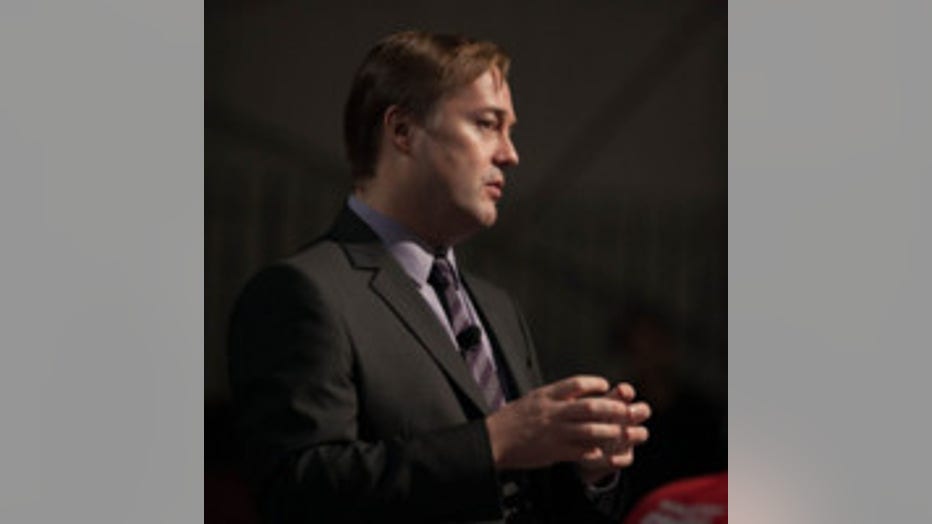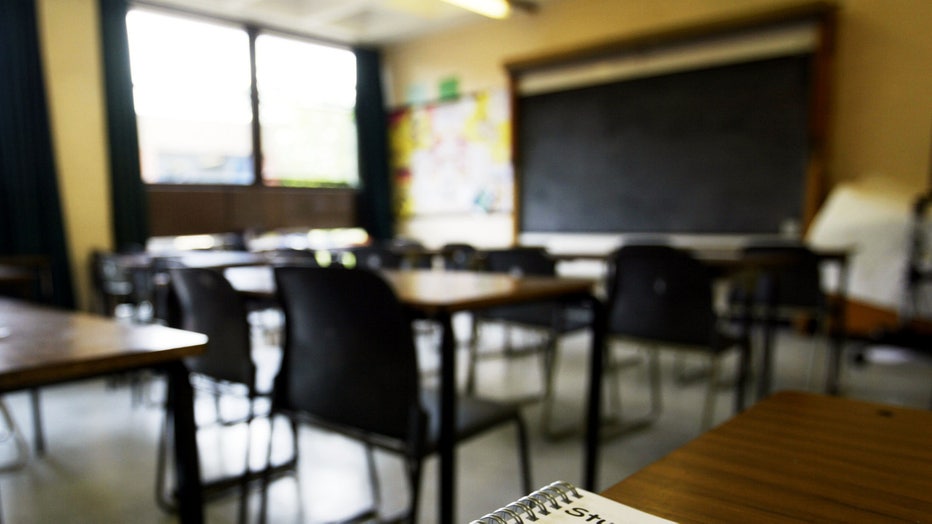Now Hiring: Bay Area tech mogul posts job for 'best' teacher to instruct kids in his backyard
SAN FRANCISCO - A Bay Area tech investor has posted a job opening seeking a teacher to instruct his child and a handful of others in the backyard of his San Francisco home, for what’s become a highly controversial learning model brought on by the pandemic.

Bay Area tech investor Jason Calacanis is seeking to hire a teacher to instruct his child and others in a micro-school. (Jason Calacanis/calacanis.com/)
Jason Calacanis, a venture capitalist for companies including ride-sharing Uber and relaxation app Calm, posted his job listing in a tweet on Sunday offering details on his search: "Looking for the best 4-6th grade teacher in Bay Area who wants a 1-year contract, that will beat whatever they are getting paid.”
To help secure the right candidate, Calacanis even threw in a finder's fee of a $2K UberEats gift card.
In an email to KTVU, Calacanis said the job opening comes when many educators have been looking for work. “Most of the teachers applying are not currently working, so that's really cool…. we won't be taking a teacher away from a public school, we will be creating a net new job during a recession--so that's awesome!”
On Twitter, he explained that the teacher hired could receive as much as $240 a day and the instruction kids would receive would be supplemental to the remote learning provided by schools. "10 student pod for 6 hours @$20-40 an hour = $120-240 a day.. that’s $12-24 per student... keep the remote public teacher to do the webcam calls with the curriculum."
As schools across the Bay Area prepared to start the new school year with online instruction. Calacanis called the micro-school model a "revolution/evolution." In a blog he wrote, "As nimble as educators were to move to remote education, something is lost when we put our kids in front of a webcam as opposed to a group of their peers."
The idea of micro-schools, also known as pandemic pods and learning bubbles, has become increasingly popular in recent weeks as parents seek alternatives to virtual instruction and supplemental opportunities for learning and social interaction for their children.
There has been plenty of interest, with groups on social media offering a way to organize these pods. Lian Chang, a mother in San Francisco started the Pandemic Pods Facebook group last month. It has since added some 30 local chapters nationwide, including 10 in California, and the group has ballooned to 35.5K members.
But the micro-school model has also drawn sharp criticism from people who blast the idea as one that can only be implemented by families with financial advantages, therefore further widening the socioeconomic divide and exacerbating educational inequalities.
To Calacanis’s plan, Twitter user @HudsonRiverCroc commented, "The advantages of being wealthy so you can ruin education for everyone else.”
Others deemed it a good idea in concept but expressed concern about how these pods could hurt education in low-income communities.
"Admirable idea but of course this micro-school idea will prove to be problematic as it will take away teachers from low-income areas, the groups will be exclusive and discriminatory," wrote another Twitter user, @KenFari.
So Calacanis responded on Twitter with another idea: Families that were interested but could not pay would receive a scholarship to be a part of the learning experience. "Listen, people, I get it: no one hates the rich more than me--I have to work with them all day long," he joked. "So, I'm making the commitment that I will not hire a public school teacher, but instead will poach a private school teacher & give the extra microschool seats to those in need!"
In another tweet he explained, "We are offering 100% scholarships for folks who can’t afford to chip in. If you live in the bay and are in the 4th or 5th grade we will take applications based on merit,” he tweeted and later added, "1/3rd or 50% of slots will be free based on need.”
This further spurred on discussion and another wave of criticism on what criteria he would use to measure these merits.
"It is extremely problematic for you, an extremely rich person, to be the [arbiter] of merit in a situation that decided who does and doesn’t get access to your boundless privilege,” wrote @kimshmisney.
Others pointed out that given the small number of slots to begin with, not many would have the opportunity to take part.
These pods or learning bubbles have recently taken center stage in the ongoing discussion about equity in education, especially during the pandemic which has highlighted other problems including digital access for low-income students.
Educators and families have acknowledged that virtual instruction does not offer the full learning experience and can negatively impact students' social-emotional growth. But families have differing views on how to remedy that.

What can be agreed upon, was that as long as the pandemic continued to shape how students learn, the debate would rage on over how best to provide kids with the necessary resources to learn-- something not lost on Calacanis, who tweeted, "I found a topic that is much more polarizing than wearing a mask—starting a school in your back yard."
There have also been discussions about how the pod idea could be used even after the pandemic was over, transforming how children are taught. But Calacanis said for his family, this was a temporary model to help bridge the educational gaps brought by the current health crisis.
"We plan on going back to public school in the 21/22 year," he told KTVU, adding, "after we beat the pandemic--which candidly we should have done by now!!"

